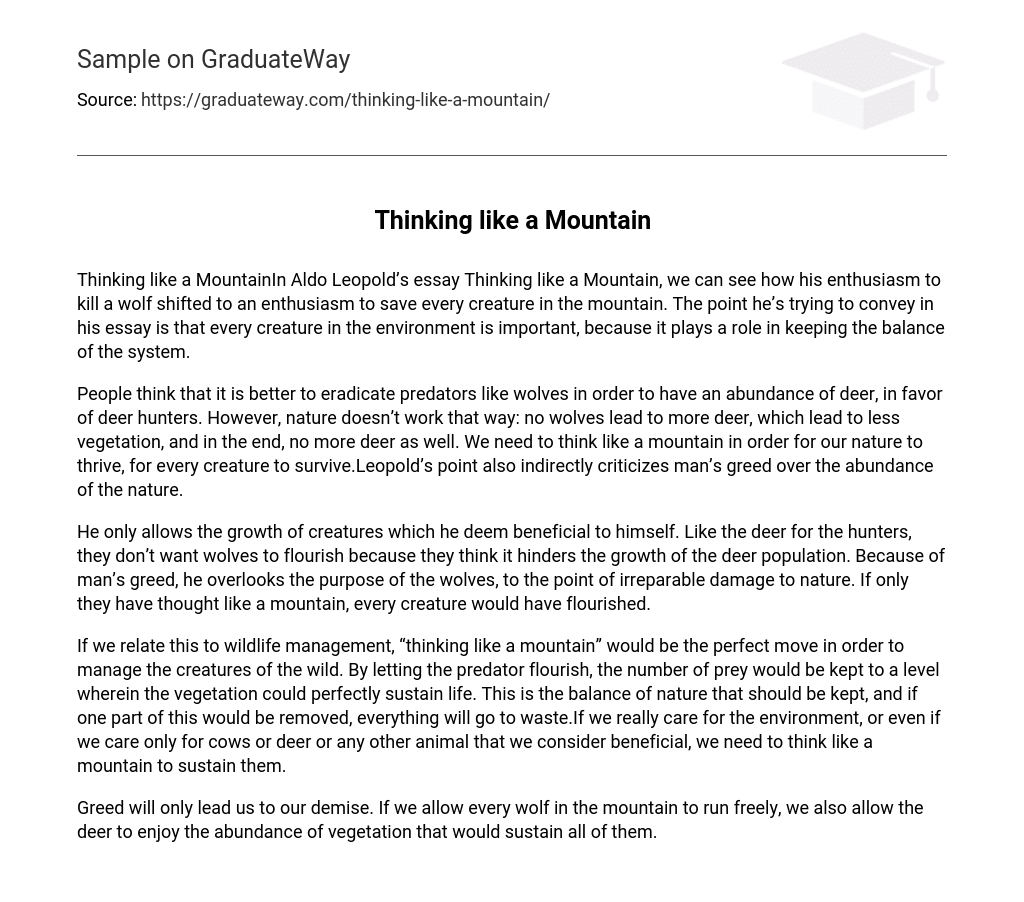In Aldo Leopold’s essay Thinking like a Mountain, we can see how his enthusiasm to kill a wolf shifted to an enthusiasm to save every creature in the mountain. The point he’s trying to convey in his essay is that every creature in the environment is important, because it plays a role in keeping the balance of the system.
People think that it is better to eradicate predators like wolves in order to have an abundance of deer, in favor of deer hunters. However, nature doesn’t work that way: no wolves lead to more deer, which lead to less vegetation, and in the end, no more deer as well. We need to think like a mountain in order for our nature to thrive, for every creature to survive.
Leopold’s point also indirectly criticizes man’s greed over the abundance of the nature. He only allows the growth of creatures which he deem beneficial to himself. Like the deer for the hunters, they don’t want wolves to flourish because they think it hinders the growth of the deer population.
Because of man’s greed, he overlooks the purpose of the wolves, to the point of irreparable damage to nature. If only they have thought like a mountain, every creature would have flourished. If we relate this to wildlife management, “thinking like a mountain” would be the perfect move in order to manage the creatures of the wild. By letting the predator flourish, the number of prey would be kept to a level wherein the vegetation could perfectly sustain life.
This is the balance of nature that should be kept, and if one part of this would be removed, everything will go to waste.If we really care for the environment, or even if we care only for cows or deer or any other animal that we consider beneficial, we need to think like a mountain to sustain them. Greed will only lead us to our demise. If we allow every wolf in the mountain to run freely, we also allow the deer to enjoy the abundance of vegetation that would sustain all of them.





